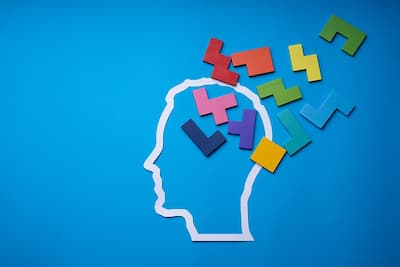Compassionately Tailored Medication Options
We understand the struggle of creating a treatment plan that works, that’s why we help you create a treatment plan that’s specifically tailored to you.

What is Medication Management?
Our treatment plan is only made after having a strong understanding of your case, expectations, and concerns because your unique needs and well-being deserve a personal touch from an empathetic psychiatric provider.
While medication is rarely the first choice for achieving general well-being, for many it is the needed extra boost to help bridge the gap between where you are and your overall general well-being. Our Medication Management services offer
A Holistic Approach
We take the time to consider all the factors that might positively or negatively affect your mental health.
A Personalized Plan
Learn how to integrate therapy approaches into your life through nutrition, exercise, and perhaps the use of psychotropic and other medications
A Perfect Match
There’s a wide sea of psychotropics and finding the one suitable for you can be a challenge. Medication management makes it easier by understanding your needs, expectations, and lifestyle.
1
Initial Assessment

Meet with your provider via online video to discuss your concerns, review your goals and receive a clinical diagnosis
2
Personalized Care Plan

Your provider will develop a treatment plan that may include a combination of medication and talk therapy
3
Follow-up Care

Meet with your provider to review your progress and discuss any adjustments to your medication.
Our Focus
What We Help You Overcome
We support individuals through a wide range of emotional, mental, and relational challenges. We offer compassionate and personalized strategies to help you find lasting relief and renewed well-being.
Anxiety
Excessive worry or fear that interferes with daily life, impacting overall well-being.
ADHD
Difficulty focusing, impulsivity, and hyperactivity that impacts attention and behavior.
Depression
Persistent low mood and loss of interest in activities that reduces daily functioning and quality of life.
OCD
Intrusive thoughts and repetitive behaviors, causing significant distress and disruption.
PTSD
A mental health condition triggered by trauma, leading to distressing symptoms affecting daily life.
Other Conditions
We are able to treat the full spectrum of mental health conditions.
Do I need Medication Management?
If one or more of the following indicators apply, you can benefit from affordable medication management at Oasis Health Services:
- You feel that your current medications do more harm than good
- You're struggling with your medication's side effects.
- You're considering discontinuing your medication due to its adverse effects.
- You feel that your current medication is not working.
- You feel as if you didn't receive enough education regarding your treatment.
- It is so hard to get an appointment with a psychiatrist
- Your psychiatrist doesn't explain the alternatives and isn't available to tweak medication.
- Your therapist suggested that you might benefit from medication
- You want to know if medication can help if you experience anxiety, depression, bipolar disorder, borderline personality disorder, OCD, or other mental health challenges
Do Psychotropic Medications Work?
The fact that a certain type of medication works for one person doesn’t necessarily mean it will work for another. Every case of depression, anxiety, ADHD, or other mental health problem is distinct as everyone is different.
That’s why medication management exists. With medication management services, you can report immediately if your medication does not seem to be effective or if you experience troubling side effects, and your prescription can be adjusted or a new treatment approach considered.

How Medication Management Helps
Medication Management is often most effective when combined with other therapeutic interventions, such as counseling, psychotherapy, and lifestyle changes.
Individual medications can vary, so finding the right medication and dosage may require collaboration between you and your healthcare provider.
Ultimately, a comprehensive and personalized approach to treatment is key to achieving the best outcomes
Anxiety
Medications like SSRIs or benzodiazepines can reduce excessive worrying, panic attacs, and physical symptoms of anxiety.
ADHD
Stimulant medications enhance dopamine and norepinephrine activity in the brain, aiding in better focus, attention, and impulse control.
Depression
Antidepressants can rebalance neurotransmitter levels in the brain, alleviating feelings of sadness, hopelessness, and fatigue, enabling individuals to experience improved mood and overall well-being.
Bipolar Disorder
Mood stabilizers can help regulate mood swings, prevent episodes of mania and depression, and promote a more stable emotional state.
Borderline Personality Disorder
Certain antidepressants and mood stabilizers can assist in managing emotional dysregulation, impulsivity, and intense mood fluctuations commonly associated with borderline personality disorder.
Other Conditions
Beneficial for schizophrenia, obsessive-compulsive disorder (OCD), post-traumatic stress disorder (PTSD) and more, by targeting specific neurotransmitter imbalances and symptom clusters related to each condition.
Understanding differences between psychiatry and therapy
Wherever you begin, your provider will collaborate with you to create a personalized treatment plan that aligns with your needs, which may include a blend of therapy and psychiatry.
Psychiatry
Meet with a licensed psychiatric provider who can diagnose and treat mental health conditions with prescription medication, as needed.
- Symptoms don't interfere with daily functioning.
- Symptoms interfere with daily functioning.
- Considering medication as part of treatment
- Experiencing little or no improvement with therapy
Therapy
Meet with a licensed mental health professional to address your individual concerns and maintain your overall well-being.
- Symptoms don't interfere with daily functioning.
- Symptoms interfere with daily functioning.
- Considering medication as part of treatment
- Experiencing little or no improvement with therapy






